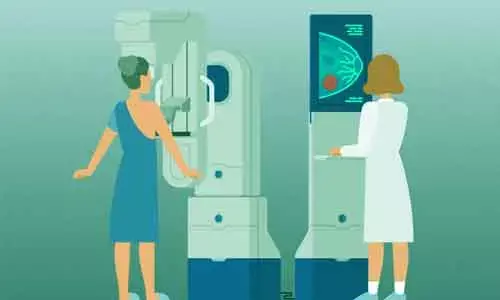- Home
- Medical news & Guidelines
- Anesthesiology
- Cardiology and CTVS
- Critical Care
- Dentistry
- Dermatology
- Diabetes and Endocrinology
- ENT
- Gastroenterology
- Medicine
- Nephrology
- Neurology
- Obstretics-Gynaecology
- Oncology
- Ophthalmology
- Orthopaedics
- Pediatrics-Neonatology
- Psychiatry
- Pulmonology
- Radiology
- Surgery
- Urology
- Laboratory Medicine
- Diet
- Nursing
- Paramedical
- Physiotherapy
- Health news
- Fact Check
- Bone Health Fact Check
- Brain Health Fact Check
- Cancer Related Fact Check
- Child Care Fact Check
- Dental and oral health fact check
- Diabetes and metabolic health fact check
- Diet and Nutrition Fact Check
- Eye and ENT Care Fact Check
- Fitness fact check
- Gut health fact check
- Heart health fact check
- Kidney health fact check
- Medical education fact check
- Men's health fact check
- Respiratory fact check
- Skin and hair care fact check
- Vaccine and Immunization fact check
- Women's health fact check
- AYUSH
- State News
- Andaman and Nicobar Islands
- Andhra Pradesh
- Arunachal Pradesh
- Assam
- Bihar
- Chandigarh
- Chattisgarh
- Dadra and Nagar Haveli
- Daman and Diu
- Delhi
- Goa
- Gujarat
- Haryana
- Himachal Pradesh
- Jammu & Kashmir
- Jharkhand
- Karnataka
- Kerala
- Ladakh
- Lakshadweep
- Madhya Pradesh
- Maharashtra
- Manipur
- Meghalaya
- Mizoram
- Nagaland
- Odisha
- Puducherry
- Punjab
- Rajasthan
- Sikkim
- Tamil Nadu
- Telangana
- Tripura
- Uttar Pradesh
- Uttrakhand
- West Bengal
- Medical Education
- Industry
No death benefit from continued mammography screening beyond 75 years

It is an important question in breast cancer screening at what age it should be stopped.This is a very pertinent question in breast cancer screening given the fact that one third of breast cancer deaths occur in women diagnosed after age 70 years.
At some age the modest potential harms associated with screening will outweigh the benefits because the latter accrue in the future.
Researchers have found that screening for breast cancer in women in their late 70s and above doesn't appear to lower breast cancer mortality.The study has appeared in the Annals of Internal Medicine.
They examined Medicare data among roughly 1 million women ages 70 and older who were likely to live another 10 years and had undergone screening mammography. They compared outcomes among women who continued annual screening with outcomes among women who stopped screening.
It was found that continuing screening from ages 70 to 74 was estimated to lower 8-year breast cancer mortality by 1 death per 1000 women, while doing so in women ages 75 and older did not have a beneficial effect.
Healthy women over the age of 75 years might not benefit from continuing breast cancer screening. Researchers used data from the Medicare program to estimate the risk of breast cancer mortality under two strategies: continuing versus stopping screening in older women. They found a small mortality benefit for continuing to screen women between the ages of 70 to 74, but not those between 75 to 84. Findings from this population-based observational study are published in Annals of Internal Medicine.
Researchers from the Harvard T.H. Chan School of Public Health, the Massachusetts General Hospital, and RTI Health Solutions used Medicare data to compare deaths from breast cancer over eight years follow-up in women who continued getting yearly mammograms and those who stopped screening. More than one million women between the ages of 70 and 84 years who had a mammography, a life expectancy of at least 10 years, and no previous cancer diagnosis were included in the evaluation. The researchers found that continuing breast cancer screening would reduce 8-year breast cancer mortality by one death per 1,000 women, with the 95 percent confidence interval (CI) ranging from two deaths to none. In contrast, continuing to screen women 75 years or older does not seem to affect 8-year breast cancer mortality. Regardless of age, women were less likely to receive aggressive therapies (radical mastectomy, chemotherapy) for breast cancer if they continued screening.
It was concluded that continuing annual breast cancer screening past age 75 years did not result in substantial reductions in 8-year breast cancer mortality compared with stopping screening.
According to an editorial by Otis Brawley, MD, from Johns Hopkins University, the study's main disadvantage is that it uses data gathered between 1999 and 2008 when digital mammography was being introduced. It is basically the standard today. One-third of American women who die of breast cancer are diagnosed after age 70. These current estimates of the benefits of screening in this age range also reflect the current breast cancer treatments used in women over 70 potentially more than it does on the limitations of mammography.
For further reference log on to:
Dr Kamal Kant Kohli-MBBS, DTCD- a chest specialist with more than 30 years of practice and a flair for writing clinical articles, Dr Kamal Kant Kohli joined Medical Dialogues as a Chief Editor of Medical News. Besides writing articles, as an editor, he proofreads and verifies all the medical content published on Medical Dialogues including those coming from journals, studies,medical conferences,guidelines etc. Email: drkohli@medicaldialogues.in. Contact no. 011-43720751


